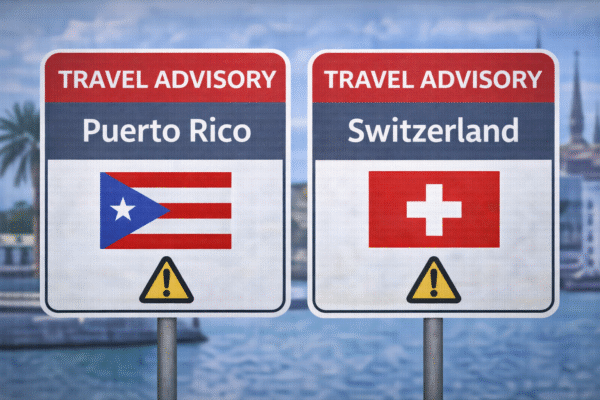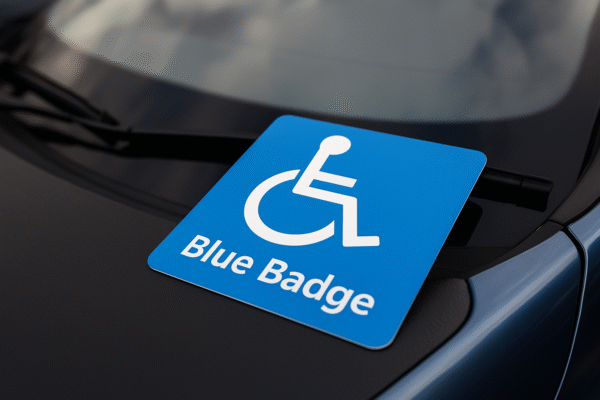Travelling through Europe is now significantly easier for disabled UK residents, thanks to a new update from the UK Foreign, Commonwealth & Development Office (FCDO). In a major move to promote inclusive travel, the UK Blue Badge parking permit is now potentially recognised in 29 Schengen Area countries, including major tourist destinations like France, Spain, Germany, and Italy.
This new development allows British Blue Badge holders to enjoy greater mobility and access to designated parking spaces across much of mainland Europe — a welcome improvement for those living with limited mobility.
What Is the UK Blue Badge Scheme?
The UK Blue Badge scheme is a government-backed initiative that enables individuals with serious mobility impairments to park closer to their destinations. It offers a range of benefits including:
- Parking in designated disabled bays
- Free or extended parking at metered or time-limited spots
- Permission to park on single or double yellow lines under specific conditions
The Blue Badge plays a vital role in helping disabled individuals maintain independence, whether for daily errands or long-distance travel. The expansion of its recognition into Europe is a game-changer for disabled tourists and business travellers alike.
New Recognition Across the Schengen Area
As of August 2025, UK travellers with a valid Blue Badge may use their permit in 29 Schengen countries, pending compliance with local parking regulations. This includes nearly all EU nations and some non-EU Schengen members such as Norway, Iceland, and Switzerland.
Popular destinations where Blue Badges are now accepted (with conditions) include:
- France: Recognition in most regions; consult local mairie for detailed rules.
- Italy: Regional differences apply; registration with local authorities may be required.
- Germany: Broad recognition, but time limits and signage vary.
- Spain: Use permitted, but many cities require advance notification to municipal authorities.
Know Before You Go: Country-Specific Rules Still Apply
Despite this improved accessibility, travellers are strongly advised to research local rules before driving or parking abroad. Some countries require additional documentation, such as:
- Local parking discs (e.g., Denmark, Sweden)
- Doctor’s letter or translation of Blue Badge
- Advance registration with local councils (e.g., Italy and Spain)
Each country has its own signage, rules about parking on yellow lines, and definitions of time-limited use. Blue Badge holders should not assume full equivalency with UK regulations.
A helpful resource is the European Commission’s Disabled Parking Card guide, which provides a breakdown of parking rights in each EU country.
How to Prepare for Travel as a Blue Badge Holder
To make your European trip as smooth as possible, follow these tips:
- Visit the FCDO’s official website: for country-specific parking guidance.
- Contact local tourism offices: Many city websites offer downloadable brochures for disabled travellers.
- Carry translations: Bring a translated version of your Blue Badge and supporting documents in the language of your destination.
- Pack a parking disc: Required in some countries to display arrival time.
- Display your badge clearly: Ensure it’s always visible on your dashboard.
The Impact on Accessible Tourism
This policy shift is a step forward in making European travel more inclusive. Popular tourist cities like Paris, Rome, Amsterdam, and Barcelona now offer improved support to disabled travellers, whether navigating historic sites, museums, or modern attractions.
Increased accessibility also has economic implications: according to VisitBritain, over 14 million disabled people in the UK account for an estimated £12 billion in annual tourism spending. Making travel easier for this group not only promotes equity but also supports the growth of the European tourism sector.
Tourist-Friendly Destinations for Blue Badge Holders
For those considering their next holiday, here are some top destinations that now offer improved access:
- Amsterdam, Netherlands – Flat terrain and well-marked disabled bays.
- Vienna, Austria – Ranked one of Europe’s most accessible cities.
- Barcelona, Spain – Fully accessible public transport and tourist attractions.
- Ljubljana, Slovenia – Emerging as a leading destination for inclusive travel.
UK Government’s Position on Accessibility Abroad
The FCDO’s travel advice update reinforces the UK’s commitment to ensuring equal rights for disabled travellers. It also aligns with broader EU objectives outlined in the European Accessibility Act, aimed at breaking down physical and digital barriers across the continent.
According to the FCDO:
“UK Blue Badge holders are encouraged to travel with confidence, while remaining aware of national differences in regulation and enforcement. Always check the latest local advice before departure.”
Final Thoughts: A Welcome Milestone for Inclusive Travel
The cross-border acceptance of the UK Blue Badge is more than a policy update — it’s a reflection of Europe’s growing commitment to accessibility and inclusive tourism. While travellers should always do their due diligence, this change opens the door to greater freedom and convenience for millions of British citizens with mobility challenges.
As the world moves toward a more inclusive travel future, this is a clear sign that disabled travellers are finally being prioritized.
For more travel news like this, keep reading Global Travel Wire
















